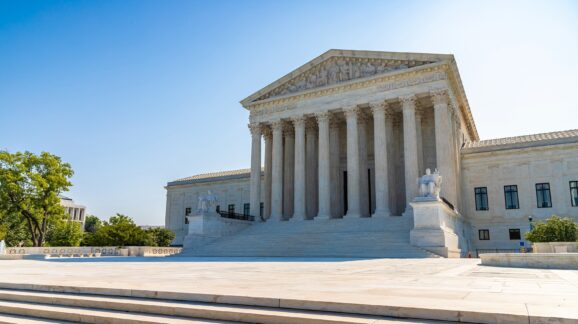A Supreme Court ruling against CFPB would benefit consumers: CEI analysis

Photo Credit: Getty
Today, the Supreme Court will hear oral arguments in CFPB v. CFSA, in which the Court will decide if the CFPB’s funding structure, which bypasses congressional appropriations in favor of funding through the Federal Reserve, is constitutional. CEI Director of Finance Policy and Senior Fellow John Berlau explains why a ruling against the CFPB would benefit consumers and Main Street businesses.
“A Supreme Court ruling against the CFPB’s funding mechanism would be beneficial for both Main Street business and American consumers. CFPB’s bypassing of the congressional appropriations process — enabled by Dodd-Frank — has allowed it to escape accountability for regulation that imposes crushing costs to community banks, credit unions, and the very consumers it claims to protect.
“For instance, the proposed CFPB rule setting inflexible $8 price controls on most credit card late fees would have a range of negative economic consequences, particularly for middle-class and lower-income consumers and for smaller banks and credit unions that issue credit cards. These consequences would likely include higher costs of credit for everyone, a pullback of credit card rewards that benefit the middle class, and a shrinkage in credit in particular for lower-income consumers.
“Should the Supreme Court provide constitutional accountability to the CFPB by putting it under appropriations, Congress should thoroughly review these costly, misguided policies before granting the CFPB even a penny of funding.”
Related analysis:
Congress Should Appropriate Money for the CFPB Through the Congressional Appropriation Process by Devin Watkins
CEI leads comments on CFPB’s $8 price controls on credit card late fees by John Berlau
CFPB Tries to Censor Speech on Chicago Crime by John Berlau